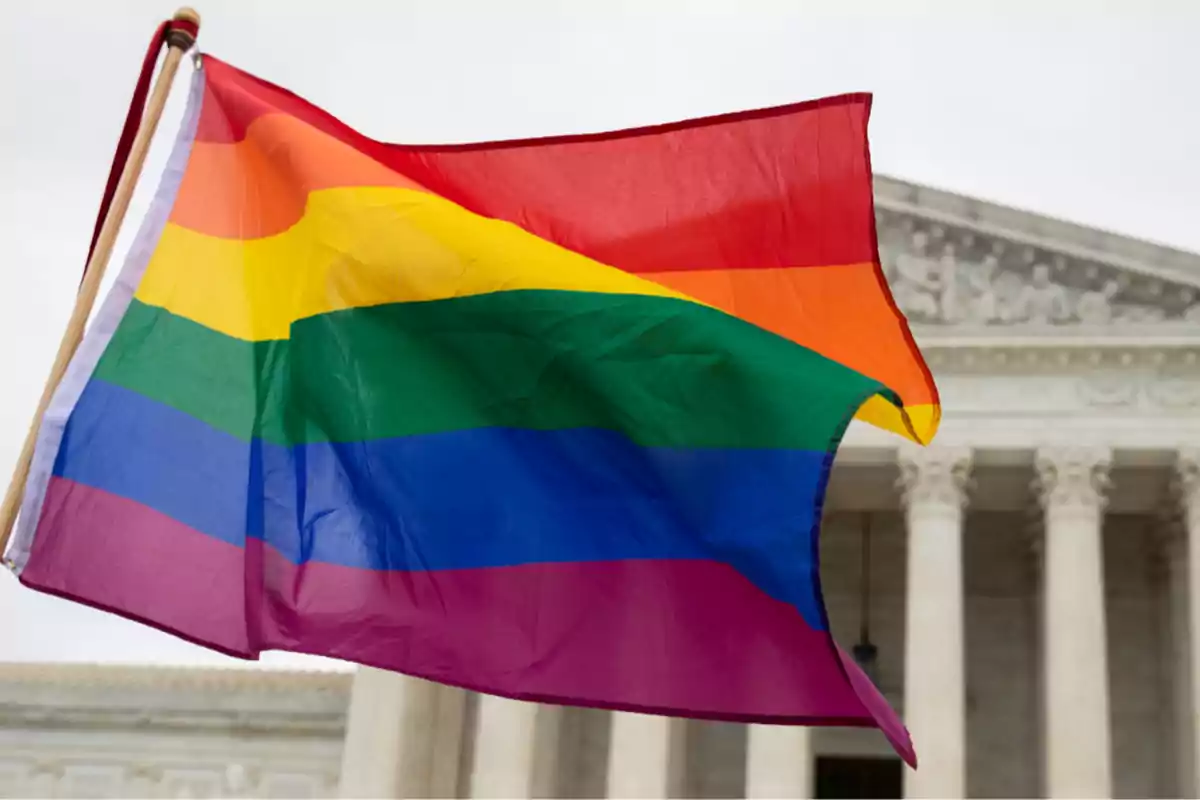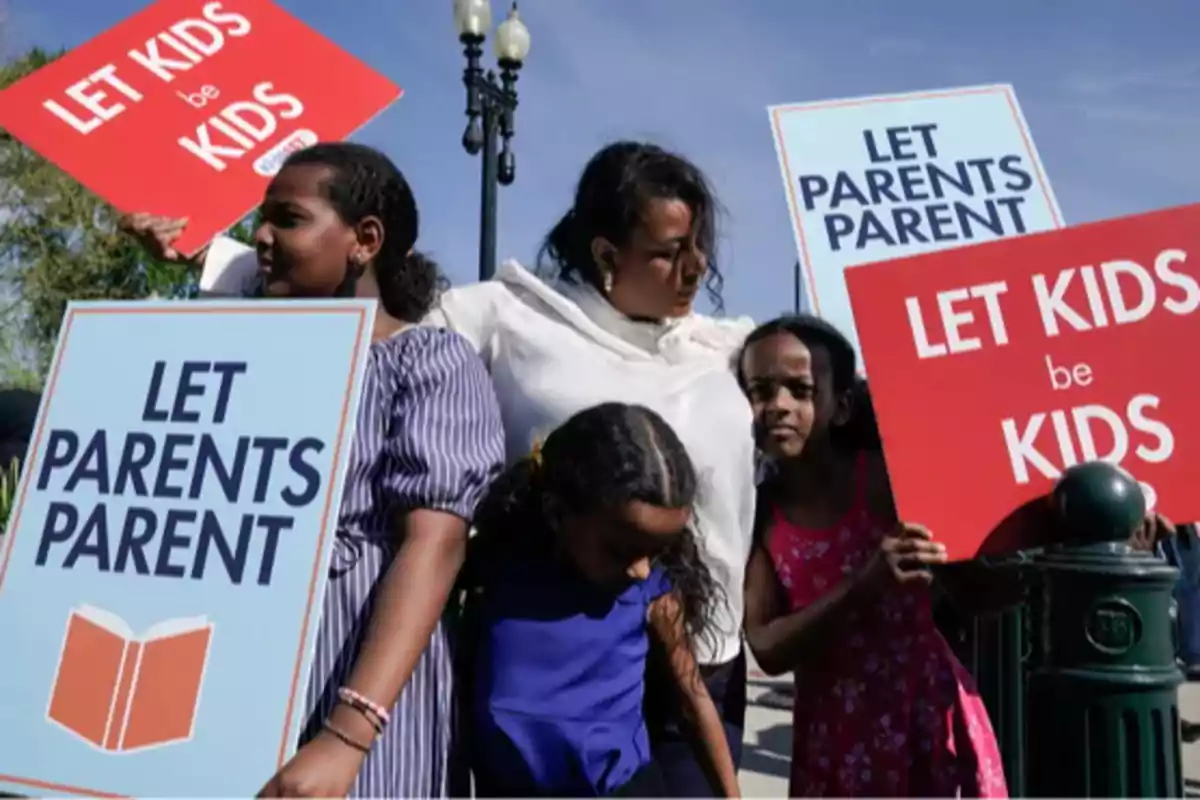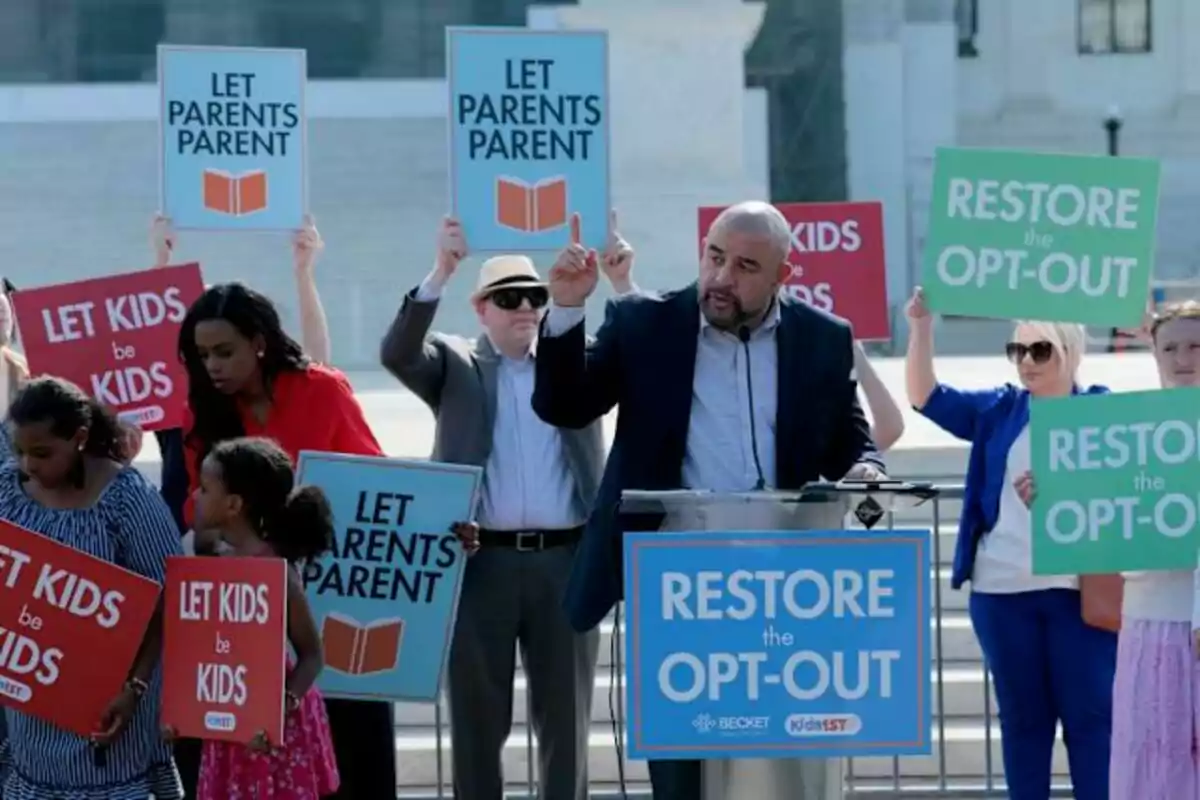
The US court allows parents to remove their children from classes with LGBT books
Previously, children were forced to read stories with LGBT themes and were forbidden to leave the class
The United States Supreme Court ruled this Friday in favor of a group of parents in Maryland who had challenged their school district's decision to not allow them to remove their children from classes that included children's stories about LGBT topics.
In a 6-3 ruling in the case Mahmoud v. Taylor, the court determined that forcing minors to participate in these types of classes violates parents' right to exercise their religious freedom. Justice Samuel Alito wrote the majority opinion, supported by the other five justices, while progressive justices Sonia Sotomayor, Elena Kagan, and Ketanji Brown Jackson dissented.
According to the ruling, parents are entitled to a preliminary injunction while the main litigation continues its legal course. Consequently, the highest court ordered the school district to inform families in advance when these books will be used in class and to give them the option for their children to not participate in those classes.

“We hold that the Board's introduction of 'LGBTQ+ inclusive' storybooks, combined with its decision not to notify parents and to prohibit voluntary opt-outs, substantially interferes with the religious development of their children and imposes the kind of burden on religious exercise,” Alito wrote in the court's opinion.
Later, the justice added: “We reject this chilling view of the State's power to strip parents of the essential right to guide their children's religious development.”
Among the books in question are "Uncle Bobby's Wedding," which tells how a girl learns about her uncle's marriage to another man, and "Born Ready: The True Story of a Boy Named Penelope," which tells the story of a "transgender boy."

The Montgomery County Public Schools system, the largest in all of Maryland, incorporated these titles with the aim of reflecting an alleged "greater diversity" in school readings.
However, in 2023, the board decided to eliminate the possibility for parents to opt their children out of these classes, arguing that such a practice caused classroom disruptions and could contribute to the "stigma and isolation of LGBTQ students."
More posts: